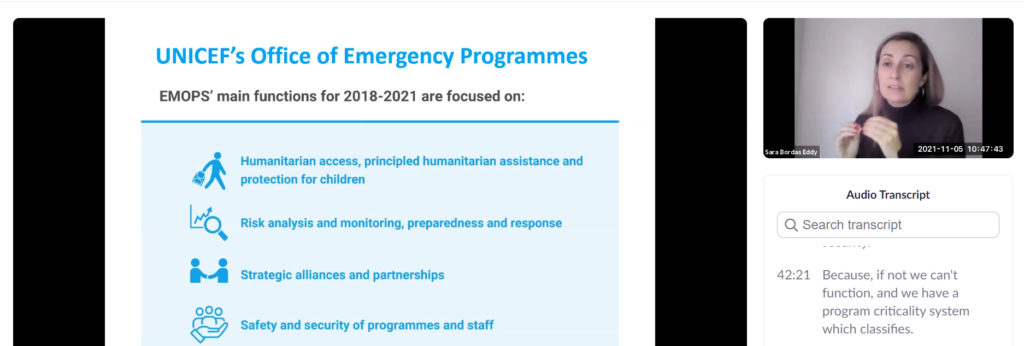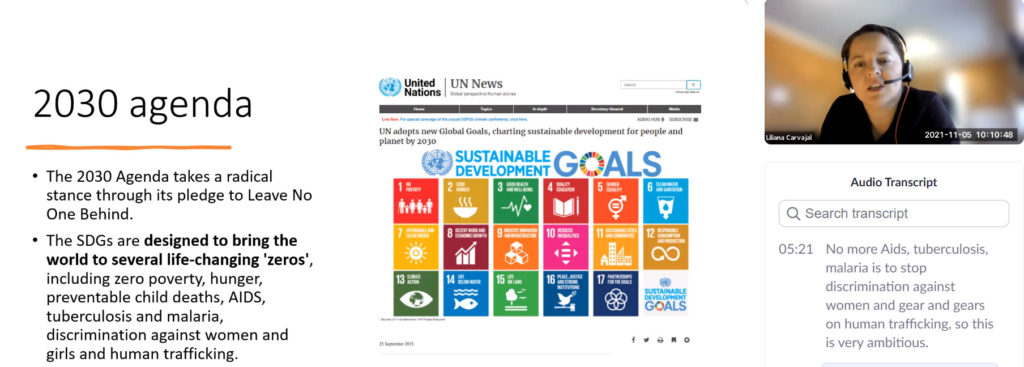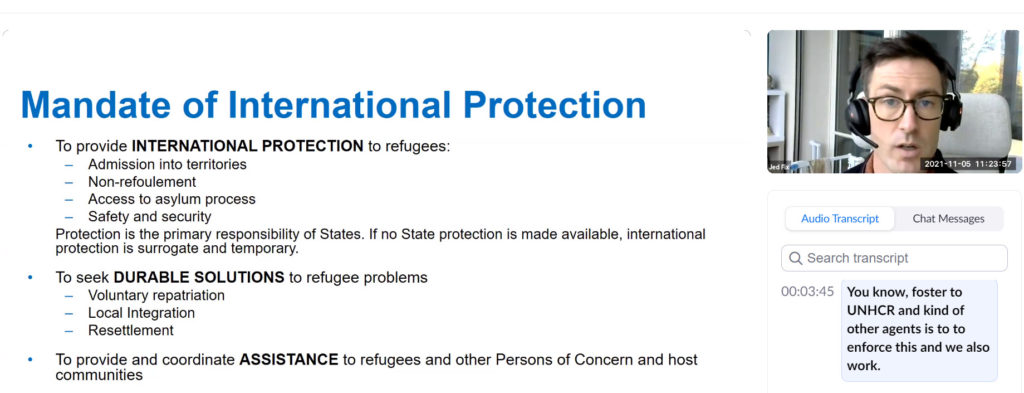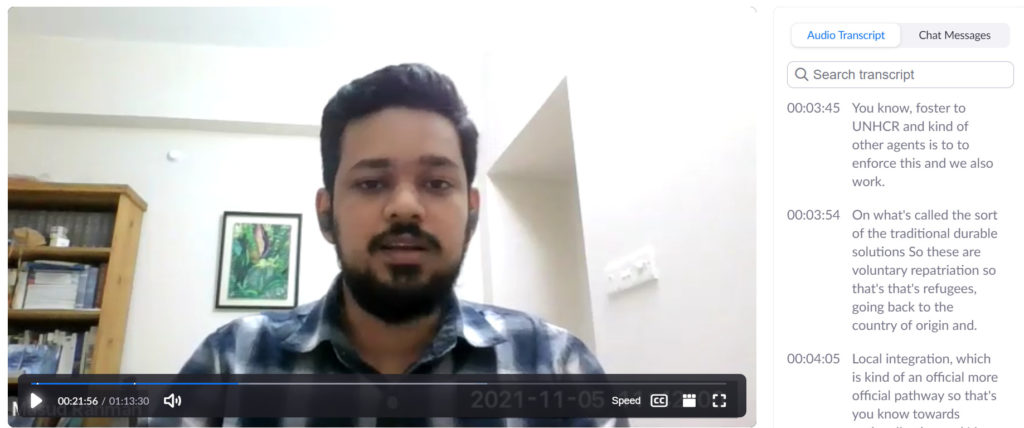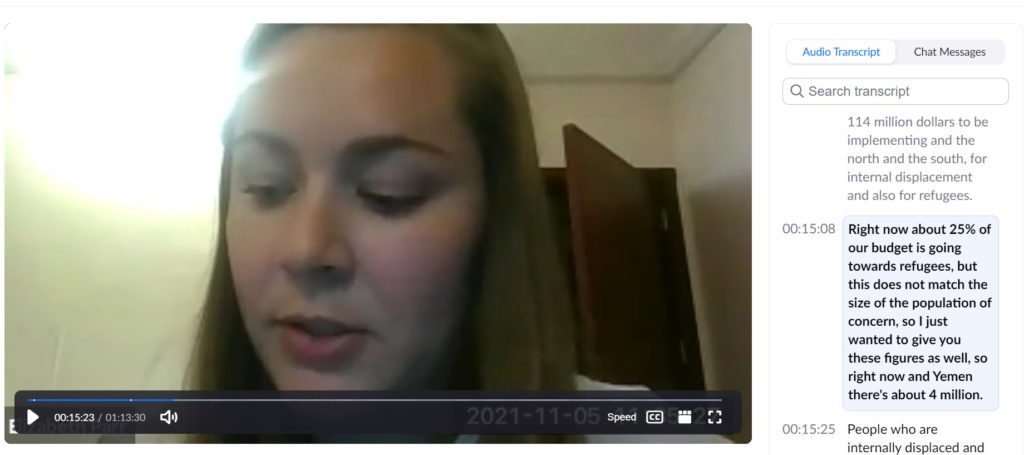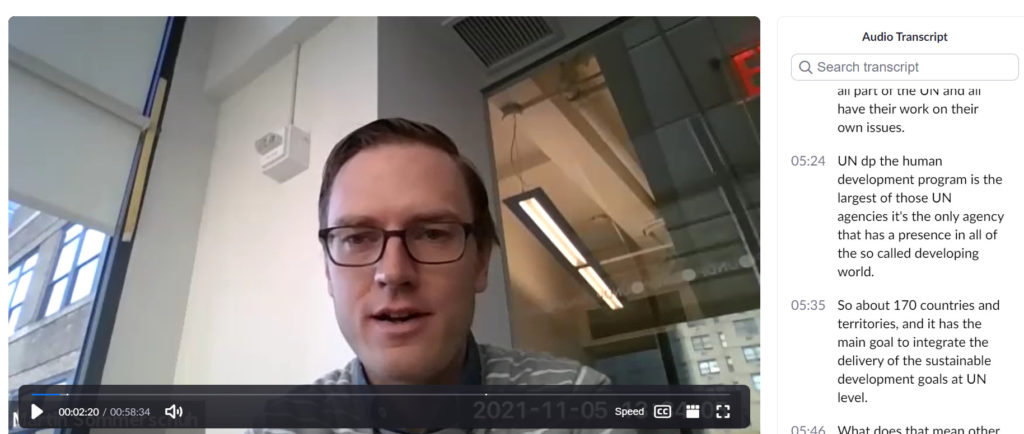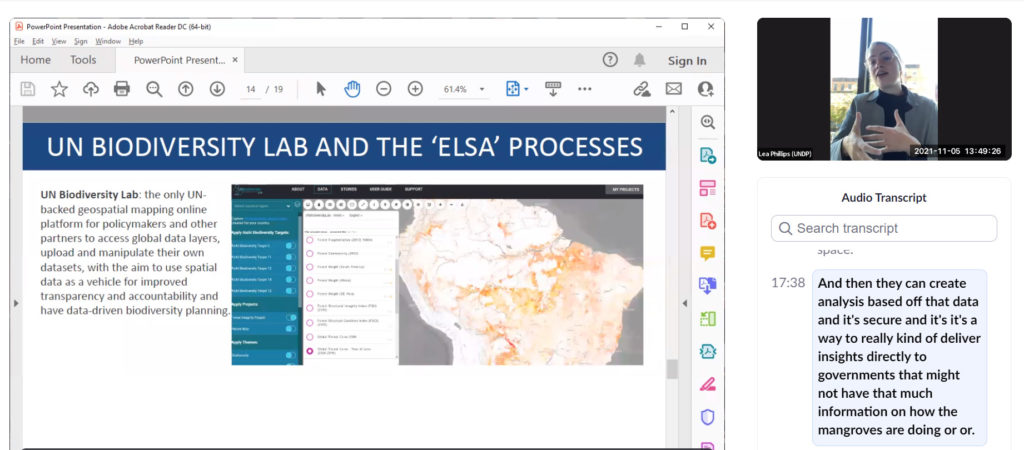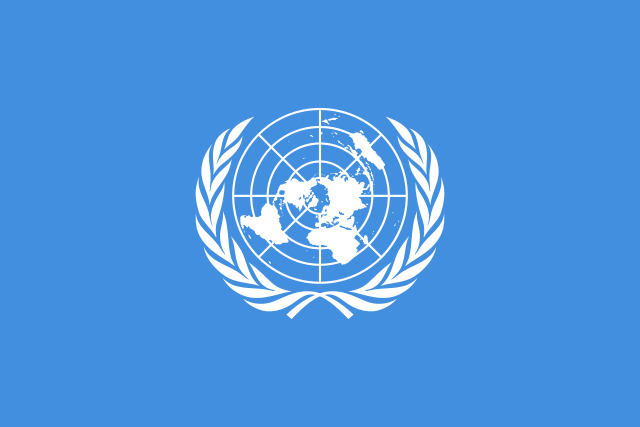
On Friday, November 5th, 2021 IPED hosted this year’s UN career day virtually. The event included speakers from UNICEF, UNHCR, UNDP, and the U.S. Mission to the United Nations. Many of our guest speakers representing these organizations are IPED alumni.
Our first speakers were Liliana Carvajal and Sara Eddy from UNICEF, both IPED alumni.
Speaker’s background:
Sara Bordas Eddy works as the Chief of Humanitarian Field Support Section within the
Emergency Programs Division at UNICEF Headquarters. Prior to joining UNICEF HQ, she
was Chief of Field Services in UNICEF Bangladesh for 3 years overseeing 7 field offices and
in charge of humanitarian coordination and Deputy Representative for 4 years in UNICEF
Madagascar. Sara has worked with the UN for 18 years in different technical and management positions
in development, political and humanitarian contexts. She started in 1999 with the UN
Secretariat, Department of Economic and Social Affairs. In 2002 she moved to UNDP, first in
the Latin American Division in NY and afterwards in Haiti as a JPO on poverty reduction. In
2006 she joined UNICEF, with the Tsunami operation in Indonesia on child protection and
stayed in UNICEF since then. Sara holds a University Degree in Economics and Business from the
University of Barcelona, Spain, and an M.A. in International Political Economy and Development from
Fordham University
Liliana Carvajal, MA, MSc Epi, works at the Division of Data Analysis Planning and Monitoring
at UNICEF-HQ as focal point for maternal, newborn, child and adolescent health. She is an
epidemiologist with over 15 years of experience in global health and has published a number of articles
in public health journals, mainly analyzing data on key indicators and determinant of health.
Liliana leads a global effort to measure mental health among adolescents at the population level, which
is spearheaded by UNICEF in collaboration with WHO, academia and other partners.
Liliana has worked for UNICEF for 10 years and prior to this she worked in other UN organizations. She
holds a Masters’ degree in International Political Economy and Development from Fordham University
(2004) and a Master of Science in Epidemiology from LSHTM (2016). She is currently conducting the
doctoral program on Global Health at Karolinska Institutet in Sweden.
Notable moments:
Liliana focused much of our attention on the role of the United Nations Sustainable Development Goals and how many of these goals guide the work that the agency does. Some of the goals mentioned directly in her presentation include goal 1: no poverty, goal 5: gender equality, Goal 6: clean water and sanitation, and Goal 16: peace, justice, and strong institutions. When it came to goal number 5, Liliana noted that when it comes to partner violence and child marriage, “data only includes cases officially reported, so there is an underestimation issue.” When asked about her career path and how IPED has been applicable in her professional life, Liliana shared that she has always been data driven, so she felt that focusing on econometrics systems like STATA and SAS were important skills acquired at IPED Fordham that served her career.
Sara spoke about how humanitarian action is central to the work at UNICEF. When it came to data collection she noted that it was imperative to triangulate between government, NGOs, and UNICEF’s own data collection in order to ensure data is captured, but also that it is reliable. As a piece of career advice she said to “try out different paths, there is no one sure career path. Follow what feels right with your personality. Personally the fast fulfillment and satisfaction of working in humanitarian work has been a good fit for me.”
Our second speakers were from UNHCR, Masud Rahman, Elizabeth Parr, and Jedediah Fix, all IPED alumni.
Speaker’s background:
Jed Fix is an Economist at UNHCR in Geneva, Switzerland. As an IPED student, he held internships at the US Embassy in the Philippines and Doctors Without Borders in New York. Following that, he was a Fulbright Fellow at the Asian Institute of Management in the Philippines, then a consultant at the World Bank in impact evaluation and health
financing, first in West Africa, then Switzerland. Previously, he served as a U.S. Peace Corps volunteer in Senegal.
Elizabeth Parr is the Associate Programme CBI Officer with UNHCR in Aden, Yemen. Her
responsibilities include project monitoring, resource management, and streamlining strategy and
guidance of cash-based programming for refugees and IDPs. Elizabeth has also worked in the Eastern
Ukraine conflict area for two years and spent 3 months at the Venezuela border on emergency mission
with the Colombia operation this last spring, both in programme management roles. Prior to joining
UNHCR, she worked at ICR focusing on scaling technology for data collection and analysis for cash and
livelihoods in country operations. Elizabeth was a Coverdell fellow while studying in IPED and graduated
in 2017. She is also an RPCV from Morocco.
Masud Rahman is an Economist for UNHCR in Bangladesh country office. His current work
consists of undertaking academic and operational research as well as facilitating external research for
use in evidence-based advocacy for refugee welfare. He also supports and advises technical units in the
operation on data collection and analytics. Prior to UNHCR, Masud worked for UNDP and at
management consulting firms for public sector clients. Masud has nearly 8 years of research and project
management experience in both development and humanitarian contexts across Asia and Africa. At
Fordham, he completed his Dual M.A. in Economics/ IPED in 2019 under Fulbright fellowship.
Notable moments:
Jed spoke extensively about mandates for international protection of refugees, seeking durable solutions to refugee problems, and providing and coordinating assistance to refugees and other persons of concern. He noted with emphasis that the largest refugee hosting countries are developing countries, who very likely need support in building the capacity to properly support their refugee populations. As a piece of career advice, Jed said that “you can still find success by casting a broad net into different kinds of internship experiences.” He highly advises that students use the IPED network to reach out to people in organizations and positions of interest and to be mindful to cultivate relationships along the way. Jed also mentioned the opportunities in learning about the market for contract positions that facilitate getting a “foot in the door” and building a portfolio of experiences.
Elizabeth felt that her previous experiences during and prior to IPED were helpful in her transition to her current field work. She mentioned that internship opportunities are available in different offices within the agency and that she’s found that often times people who have been in the organization for many years (she noted a high retention rate) started in an internship position. In elaborating about her current role she shared that for those in her position the organization assists in supporting dependents, has a cyclical model of on-site time and family breaks, and varying housing structures (depending on location).
Masaud had a lot to share about acquiring applicable skills through IPED and a “job hunt” strategy for the agency. He mentioned the benefits of having data analysis skills through systems like STATA (used in our econometrics course) and R. Beyond these he said that Excel skills had proven to be the most useful since this is a tool widely used and recognized, particularly for project management. He said that though research and analysis play a role in his work, project management is just as significant and requires its own skillsets. For job prospecting he suggested going to the career board for jobs and submitting your resume to the talent pool.
Our third set of speakers representing UNDP were Lea Phillips (IPED) and Martin Sommerschuh.
Speaker’s background:
Lea Phillips is a Biodiversity and Planning Analyst who provides key implementation support to
the project, Mapping Nature for People and Planet. Since May 2020, she has worked closely with UNDP
Country Offices across the globe to hold high-impact stakeholder consultations on spatial data and
national biodiversity planning. Lea’s contributions to the project include high quality communications
pieces, stakeholder engagement, grant writing, and event coordination. Prior to joining UNDP, Lea Phillips worked as a Youth Development Program Coordinator for Peace Corps, Morocco. During this formative experience, Lea co-created programs around health, gender, and the environment with local leaders. She holds a Masters in International Political Economy and Development from Fordham University with an emphasis on Sustainable Development.
Martin Sommerschuh is the Coordinator of UNDP’s Equator Initiative and also contributes to
UNDP’s Global Programme on Nature for Development’s work on scaling Indigenous and local
community solutions. He runs the Equator Prize, supports events and community dialogues with and
among Indigenous Peoples and Local Communities, and works on fundraising and reporting. He has
worked with Indigenous communities facing climate change and extractive industries in the Andes and
the Amazon. Out of UNDP’s Regional Hub for Asia and the Pacific in Bangkok, he has supported efforts
to globally improve Indigenous peoples’ access to climate finance. He holds an MA in Political Science
from the University of Munich.
Notable moments:
Martin provided an overview of the Global Programme on Nature for Development team that he is a part of within UNDP. He noted that it is important for them to work with local partners for implementation of development projects since development through external actors is unsustainable. He talked about the agency’s focus on nature based solutions to tackle social and environmental challenges by accelerating system change by finding models that work and scaling them through learning, advocacy, financing, law making, and many other approaches. He also touched on the Equator Initiative, which recognizes the work and success in nature based solutions of indigenous and local people and gives them a platform to share their knowledge with others in the global community.
Lea spoke to us about her work on the spatial team which works on providing access to the UN Biodiversity Lab (UNBL), a public online mapping systems that offers users the ability to view different data layers about their country to make well informed decision about managing resources, conservation efforts, urban planning, and many other issues. For career advice, Lea shared her story of getting a job at UNDP though networking and stressed how important this was for her to prioritize during her graduate studies. Though internship opportunities may not always be visible, it was possible for her to obtain one with UNDP by asking the right people!
Our last set of speakers joined us from the U.S. Mission to the UN
Speaker’s background:
Catie Kenyon (she/her) is a Program Assistant in the Human Resources office at the U.S.
Mission to the United Nations (USUN), where she assists mission personnel and helps run the USUN
internship program. Catie first came to USUN in 2019 as an undergraduate intern in the Economic and
Social Affairs section, and she returned to USUN after graduating from Wellesley College in May 2020.
Prior to USUN, Catie worked on issues including law and human rights at the U.S. Supreme Court, the U.S. Embassy in Madrid, Spain, and an LGBT think tank. In her free time, Catie likes to read and go on
walks with friends.
Rachel Smith-Levy serves as a Political Adviser at the U.S. Mission to the United Nations,
where she works on Middle East issues in the Security Council. She was previously the Department of
State’s 2018-2019 Kathryn and Shelby Cullom Davis Foreign Service Fellow at Columbia University’s
School of International and Public Affairs. Rachel has been a Foreign Service Officer with the U.S.
Department of State since 2005, focusing mostly on the Near East region. From 2015-2018, she served
as the “Syria Watcher” at the U.S. Embassy in Amman, where she focused on opposition areas of
southern Syria, helping negotiate a de-escalation agreement there and serving as the U.S.
representative to a ceasefire monitoring center. In Washington, Rachel served as the Qatar and Oman
Desk Officer and as a Staff Assistant in the Department’s Bureau of Near Eastern Affairs. She has also
served overseas tours at the U.S. embassies in Prague and Tel Aviv. Rachel received a bachelor’s degree
in Near Eastern Studies from Princeton University and a master’s degree in Near Eastern Studies from
New York University. She speaks Arabic, Czech, and Hebrew.

